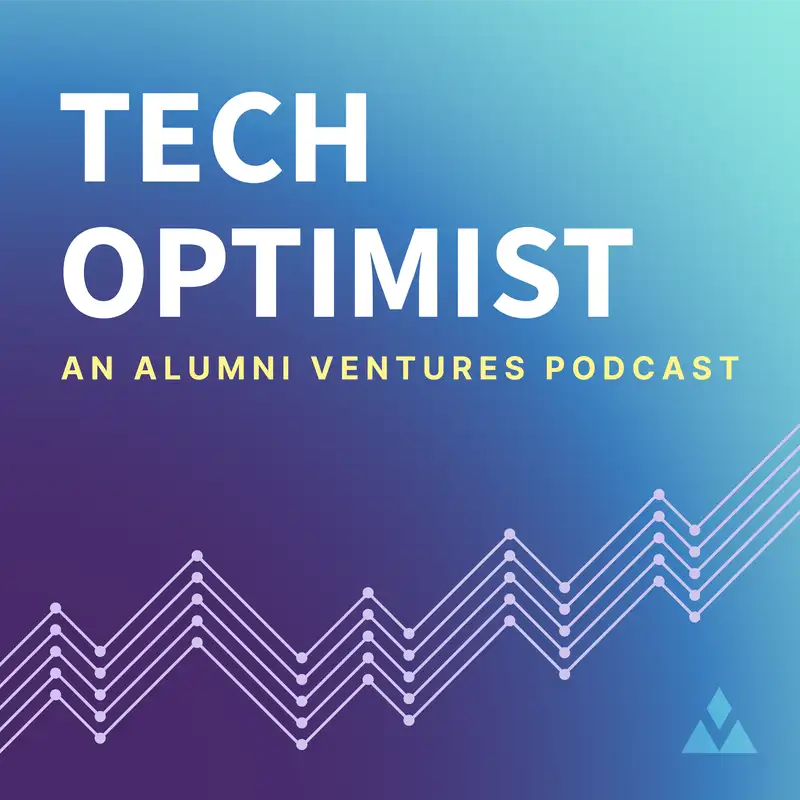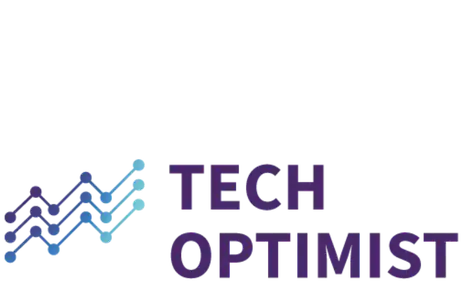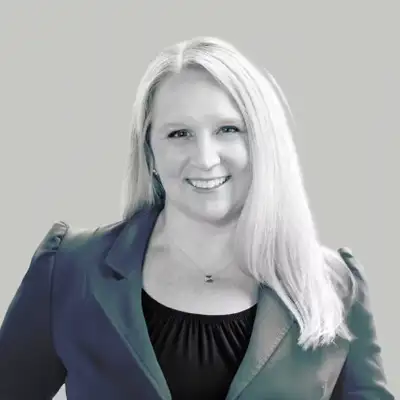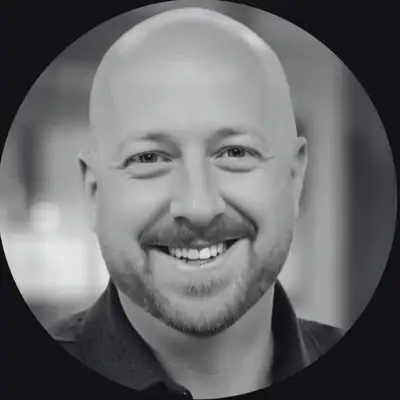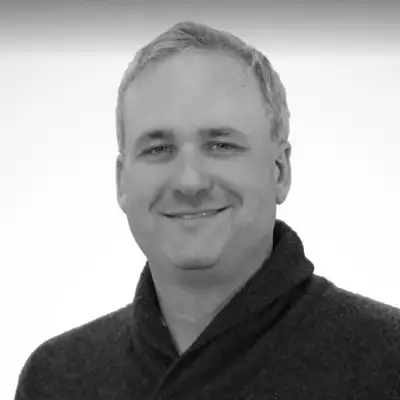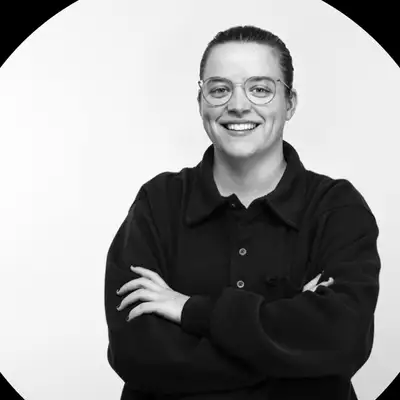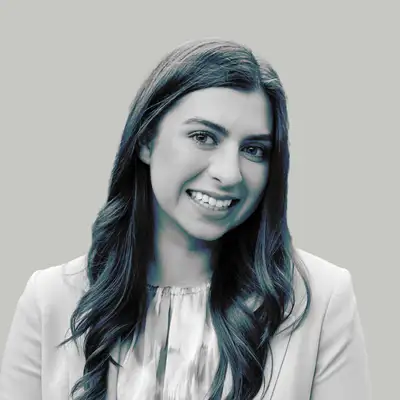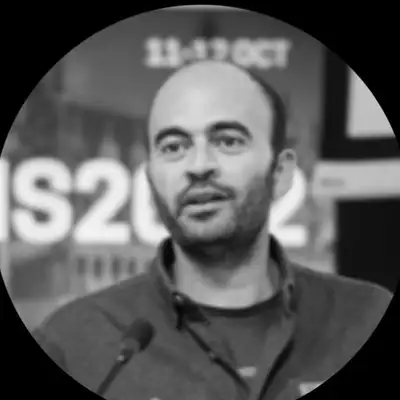#15 - Developing the Circular Economy for People, Planet, and Profit
Speaker 1:
In a world captivated by criticism, it's easy to overlook the groundbreaking technologies shaping our future. Let's shine a light on innovators who are propelling us forward. As the most active venture capital firm in the US, we have an exceptional view of tech's real-world impact. Join us as we explore, celebrate, and contribute to the stories of those creating tomorrow. Welcome to the Tech Optimist. As a reminder, the Tech Optimist podcast is for the informational purposes only. It's not personalized advice, and it's not an offer to buy or sell securities. For additional important details, please see the text description accompanying this episode.
Welcome to another episode of The Tech Optimist. We have a different type of interview for you today. Today we're sitting down with Ron Levin, managing partner here at Alumni Ventures, and Sharif Barakat, the CEO and Co-founder of this really fascinating company called Swaplanet in Greece. So Swaplanet has done something really innovative to the secondhand children merchandise donation space. I know it's quite a mouthful, but you'll understand here in a second. Within their platform, they've created their own currency. Parents receive credits for clothes that they give to Swaplanet, which they then can use to shop for donated clothes from other families. I'll let Sharif tell you more in just a minute. But they're a sort of one-stop shop for busy families trying to downsize their kids' closets and dressers. Swaplanet works as a sort of hassle-free secondhand clothing merchandise platform. Ron and Sharif have a super fascinating conversation behind this and how he started his company and why he started it and everything, and how he's trying to help serve families not only in Greece, but how he wants to venture outside to the rest of the globe. So please enjoy this conversation between Ron and Sharif.
Ron Levin :
Hi everyone. Ron Levin here, managing partner of the Alumni Ventures Seed Fund. Excited to join the Tech Optimist podcast today with Sharif Barakat, co-founder and CEO of Swaplanet in Athens, Greece. A very exciting and impactful company on multiple dimensions, I would say, and very happy to share the story with our community here today. So Sharif, welcome. Thank you for joining us, well digitally, I guess it doesn't matter that you're so many time zones away, but happy to have you with us.
Sharif Barakat:
Thank you. Thanks for the invitation. It's really great to be here.
Ron Levin :
Yeah. Why don't you get started by just telling us a little bit about your background and how you came to start Swaplanet?
Sharif Barakat:
Sure. Well, I have kind of a mixed background. I grew up in the Middle East, but then quickly moved to Montreal in Canada, studied engineering there. Worked as an engineer basically in my 20s, and then MBA worked in finance, development banking in my 30s. And when my 40s came, I decided I'll take a sabbatical move to Greece, because I have some Greek family, for the first time and find something to do. I'd taken a sabbatical year and was traveling around with my wife. We had one daughter, we were expecting a boy, and so we were kind of dreading the return to Athens and having to unpack so many boxes of girls' clothes and having to buy so many boys' clothes at the same time. We thought, it doesn't make any sense. There must be a solution out there for us to exchange, to swap what we don't need for what we need.
We can't be the only parents facing this. Around that time, I met my co-founders here in Athens, and we kind of were all looking to start a purpose-driven impact startup. And as soon as we started researching textile and fashion sector and what it was doing to the world, and we considered ourselves, people who've traveled, who are reasonably well-read and know enough things about the world, and we were really shocked by the numbers. 10% of global CO2, 20% of wastewater by the fashion industry. More polluting than plastic, than aviation and shipping, maritime shipping, combined. So it was just staggering and we thought, all right, this needs to get out there. There's a great business opportunity as well, because this is cost savings and sustainability. The only question was how come nobody has done it yet? So we quickly looked up the competition. We found that there was room, especially in the kids segment, and we jumped right in.
Ron Levin :
Yeah, that's amazing. I mean, truly seeing the need and jumping right in. And obviously trying to create a platform to help solve for the planet and climate is a very important goal, but you're also really helping families in different ways. Maybe talk a little bit more about the mission and maybe a bit about your business model and how it brings it all together.
Sharif Barakat:
Absolutely. Well, the easy part of it was that I was solving for a problem that I was facing myself at home. So I could instantly do that feedback loop and see, does it work? Would it work for me? I could check with my wife, even brought my daughter into shop as well. So we were able to test and iterate very quickly based on our own needs. We also reached out to other parents to make sure we were solving a real need out there. It wasn't something that was imagined or very specific to us. So the way it works is we were designing this for parents and we wanted it to be as easy as possible. So convenience, ease of use, trust, that was really number one driver. So we very quickly crossed out the marketplace approach where you have a peer-to-peer marketplace where you upload things and you have to take photos and write descriptions and go to the post office and ship.
That was too much of a hassle. It was really clear that parents don't have time for that kind of solution. So our model is about taking all of the work out of their hands, doing it ourselves. So a courier will show up to their door, pick up everything they don't need, bring it to us, we pay for that. We sort it. We issue credit to the parents for everything that they've sent and that we've accepted. We then wash it, photograph it, upload it to our website, and they can start shopping with the credit that they've earned from everything that they've sent. So they don't even need to leave the house. They get paid almost instantly. In order to get around cash flow problems and the consignment issue that most competitors have been offering, we created our own currency, which we call Planets. And so customers are paid in that currency. They're paid right away. It's a virtual currency. They log in, they see that in their online wallet, and they can start spending it right away. So there's no lag, there's no need to leave the house. The clothes come, they're washed, they're ironed, free returns 14 days. So really making it as easy as possible and kind of a no-brainer for parents. That's what we wanted to build.
Ron Levin :
So parents, in other words, have the opportunity both to sell unused but still, or not unused, but unneeded but still usable clothes or perhaps other children's items and get some money back for that. As well as recycling products that can be recycled while others, I presume, have the opportunity to pick up these goods cheaper than buying new. So it can save families money as well, right?
Sharif Barakat:
Absolutely.
Meera Oak:
Hey, everyone, just taking a quick break so I can tell you about the Seed Fund from Alumni Ventures. AV is one of the only VC firms focused on making venture capital accessible to individual investors like you. In fact, AV is one of the most active and best performing VCs in the US, and we co-invest alongside renowned lead investors. With our Seed Fund, you'll have the opportunity to invest in a portfolio that aims to back some of the most innovative and scalable early-stage tech ventures, all while focusing on the beginning of the venture funnel where valuations are typically most reasonable and the potential upside is greatest. To get started, visit us at av.vc/funds/seedfund.
Sharif Barakat:
And a lot of the things that, not a lot but quite a few are new still with tags because sometimes people will get gifts and it might be the wrong season, and by the time the right season comes along, the kids have grown. But we do create a solution both for sellers and for buyers. We started off with clothes and shoes. We've added books as well, and end of last year we added toys. So we're really moving into that kind of one-stop shop. Anything that you have lying around home that revolves around kids, we are the people to take it off your hands and you can earn from that and also shop from that.
Ron Levin :
And you obviously went to market in Greece because that's your home, that's where you are, and that's where you saw the immediate market opportunity. But how are you thinking about scaling this across borders?
Sharif Barakat:
Well, the way it's been working in Greece is really promising. Greece is a country, if I may say that, it's not really at the most progressive in Europe in terms of prioritizing sustainability when shopping. I say this because this is what I hear actually from Greek customers and from the market around. It's also what we've seen. And the fact that we've had such great traction here is really promising. Greece is a small market, it's 10 million people, one and a half million kids. For us, it's a great country to kind of experiment with the model, see that it works. It's a country that is not too small, not too large. We're the only players here. Running costs are low, so burn is low, which is great for startups and for investors. But the real idea is to go to much bigger markets. So we have our eyes on Western Europe, on France, and Germany, Spain, Italy, Poland. We can also go into larger countries nearby, such as Turkey and Egypt. Those two countries alone have 50 million kids. And the US is always the tempting large market because in one strike you've got the whole population of Europe and more, and it's one language, no borders, but we haven't yet decided whether we will go there. So at the time being, it's just something that maybe is a bit distant.
Ron Levin :
Yeah, absolutely. Well, I'm curious as an entrepreneur, what has been your biggest positive surprise since you got into this and maybe your biggest challenge or negative surprise?
Sharif Barakat:
The positive surprise is how quickly we could reach unit economics, positive growth profit. We were really challenged in the beginning by investors when we were still in the idea and launch phase about the operations intensity of our model. Because as I mentioned, we do everything in-house. We do everything ourselves. We're not a peer-to-peer marketplace, which you can just launch and kind of manage the transaction behind the scenes. We do all the work. And so we were really worried whether this could make sense on a unit economic level, whether we would be able to bring the unit costs down for the shipping, for the laundry, for the sorting and all of that at a cost point that's below the price point. And we were able to do that much faster than expected. So that was a really positive surprise, that people are willing to pay and pay enough to cover the costs and allow for some profit. So that was great, and we reached that quite quick.
The negative surprise I would is what I touched upon earlier, which is that sustainability is really not the biggest driver. We're not sure how it's going to be in other countries, but at least what we've seen here is that it isn't the biggest driver. People are more concerned about how much they're paying, what kind of brands they're getting. So the value proposition in terms of what am I getting from Swaplanet compared to what I would get if I just go down to the mall or down to commercial shops, especially when there are sales and discounts. So it's really that kind of mentality that we're struggling with. We thought that there might be a willingness to pay a little bit of a premium or go through extra waiting time, because this is an eShop after all, in order to go for the more sustainable option, but it hasn't really been the case. So we've had to change our communication, our messaging, to really focus on the cost benefits, on the convenience of being able to declutter homes and empty out wardrobes rather than on the environmental benefits. Environmental benefits so far are kind of the cherry on top. So we educate, we raise awareness, we kind of pat our customers on the back and make them feel like they really are making a difference, but that's not the main driver. So that was a bit of a surprise.
Ron Levin :
Yeah. And one question for most of our audience is here in the US we have investors, we have entrepreneurs, people that are just interested in technology in general. What do we as Americans not know, or what should we know more about in terms of maybe the European tech ecosystem and innovation that's coming out of Europe?
Sharif Barakat:
In general, Europe does pay attention, very close attention to what's happening in the US because the US does have much heavier investment in innovative types of startups. The ticket sizes are bigger for startups, and there's a lot more money that startups can spend on innovation and technology. So I would say, to be honest, that probably most of the knowledge innovation are coming from the US to here. What's great about here is that maybe due to the smaller sizes, there's more of an opportunity to build connected and community type startups. Which is a case, for example, with Swaplanet because we are creating a kind of a community of swappers here in Greece, and we've try to do something like that in each country that we go to. But yeah, innovation, there might be a bit more grants and that kind of support from governments and from states. But yeah, I would say it's mostly coming from the US.
Ron Levin :
Yeah.
Speaker 5:
Ever wonder how the ultra wealthy invest their money? They back startups before they go public through venture capital. Now individual investors like you can too with Alumni Ventures, visit av.vc to get started.
Ron Levin :
And just as a final question, just curious to understand if you have any asks for our community, we have a broad audience of people that follow us. Is there any way, I guess, unless we happen to be living in Greece, we might not be able to be customers today, but anything you're looking for in the way of partnerships or expertise or anything like that?
Sharif Barakat:
Yeah. There's so much that we would love to get support on. We're trying to really change mentalities and behaviors. We're trying to make people think how to prioritize secondhand over new, even when new is cheaper. So changing habits so that people look online solutions like Swaplanets or other secondhand solutions. So any people who might be aware of the cognitive psychology or consumer behavior side of things that might help us fine tune and hone our messaging so that people do go for that. That's one thing that comes to mind. Finding the right price points. So people who are really good at price strategy and understanding how consumers think about that so that we find the right pricing policy in general, because we're still struggling with do we do individual pricing or subscription model, for example, a membership model. Which is kind of like Netflix where you have fixed fee and then unlimited swaps. That sounds like an amazing value proposition for a customer, but would it make sense for both sides.
And the big question I mentioned earlier, which is the US where we should be focusing on because it's a big market, but is it ready? Is it attractive given that there are so many cheap alternatives available and discount and outlets and so on? Is it a place where it might work? We don't see many solutions yet. I mean, there's ThreadUp and a couple more, but nothing really for kids. So people with that kind of insight
Ron Levin :
And if folks want to learn more, swaplanet.com is the place to go.
Sharif Barakat:
Absolutely swaplanet.com with one P.
Ron Levin :
Excellent. Well, thank you, Sharif. It's been such a pleasure having you and glad to share your story. I think it's an interesting one, and I hope it's something that really starts scaling because there's a lot of good to come from it, I believe. Really appreciate-
Sharif Barakat:
Thank you so much, Ron. Thank you for the invitation again. And yeah, thanks. It's really great to be here and have the voice across the US.
Ron Levin :
Pleasure.
Sharif Barakat:
Hope we speak again soon and to your US consumers, thanks.
Ron Levin :
Absolutely. Thank you.
Speaker 1:
Thanks again for tuning into the Tech Optimist. If you enjoyed this episode, we'd really appreciate it if you'd give us a rating on whichever podcast app you're using and remember to subscribe to keep up with each episode. The Tech Optimist welcomes any questions, comments, or segment suggestions. So please email us at info@techoptimist.vc with any of those, and be sure to visit our website at av.vc. As always, keep building.
